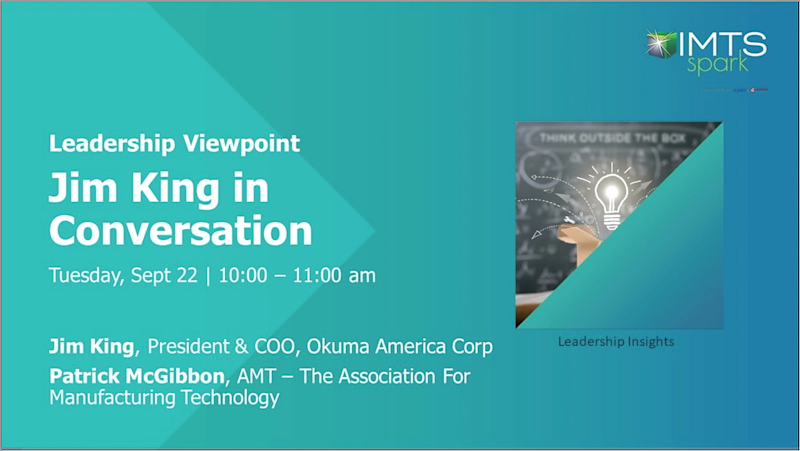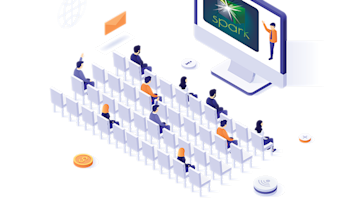If you missed it, check out the He talked about a number of subjects, including the growth of transformative technologies, his expectations for rebuilding supply chains, and changing the culture and values at Okuma. Here are a few key takeaways.
King discussed necessity as driving change and growth in business and in manufacturing, and how, in crisis situations, change and innovation have to happen for companies to survive. As an example, one of many things we’re currently seeing is an acceleration of new communication tools of all types. In addition to applications like Zoom, tools such as remote diagnostics are being used more frequently to troubleshoot machines remotely.
In the area of automation and the digital thread, King thinks the value proposition has not been made fully clear in terms of benefits to smaller shops. He believes initial value will be realized through incremental automation as a cost driver – for example, to enable preventive and predictive maintenance – because this is an easier sell than the more abstract “Industry 4.0.” King discussed ways smaller shops can dip their toes in the water to get started with automation, such as using open software to connect machines, and the importance of prioritizing the most critical data that drives the business before buying software and connecting machines. He also believes there needs to be innovation in the security of data, such as through blockchain, because most companies are concerned about having their IP in cloud environments.
On the subject of reshoring, King believes we will see reshoring in the next two to three years because of the supply chain challenges we have just experienced and wonders how the United States will handle the labor challenge that will come with reshoring, even if only 15%-20% of manufacturing comes back. He believes that automation in manufacturing will be necessary to solve this problem.
King said that one of the highlights of his career was changing Okuma’s mission statement and values years ago and how this really changed the company and the mindset of employees. The company changed focus to taking care of customers and to “passionately pursue a customer for life.” In closing, he talked about a task force that was created at Okuma to collect information about what employees and the company overall learned from the pandemic – both good and bad. In January, executives and others will look into new strategies based on what has been learned.










